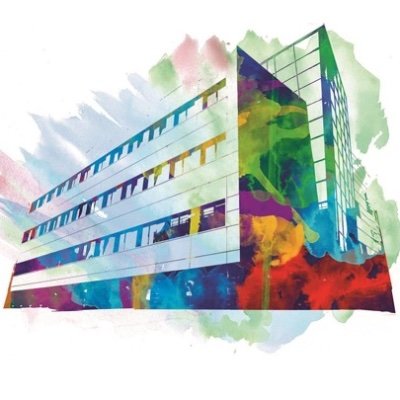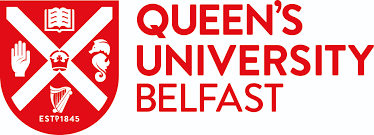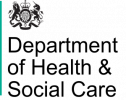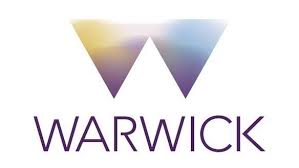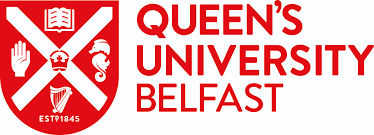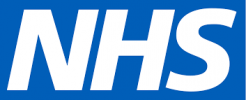National Institute for Health Research (NIHR): Government against COVID-19 Grant Funding
.jpg)
Entity: National Institute for Health Research (NIHR)
Category: General Government
1. Programme Title: COVID-19 Urgent Public Health Research
Summary: COVID-19 Urgent Public Health Research is being prioritised to gather the necessary clinical and epidemiological evidence that will inform national policy and enable new diagnostic tests, treatments and vaccines to be developed and tested for COVID-19. Government support is available to prioritise, coordinate and deliver these studies, regardless of sponsorship and funding source. This support includes expedited identification of sites to ensure appropriate geographical distribution of Urgent Public Health Research to maximise recruitment and minimise over-commitment of resource.
2. Programme Title: Call for research on COVID-19 and ethnicity
Summary: The NIHR and UK Research and Innovation (UKRI) are jointly calling for research proposals to investigate emerging evidence of an association between ethnicity and COVID-19 incidence and adverse health outcomes. The two organisations are seeking to fund research to further our understanding of potential differences in risk for ethnic groups, which groups are at greatest risk of a range of adverse outcomes, and, based on that understanding, how to reduce morbidity and mortality from COVID-19 in groups identified at greater risk.
3. Programme Title: NIHR-BHF Cardiovascular Partnership COVID-19 Research
Summary: The British Heart Foundation (BHF) and the National Institute for Health Research (NIHR) invite applications for their COVID-19 research call. Projects should address key questions such as: the nature and importance of cardiovascular complications in COVID-19 infection, and how they could be prevented understanding why patients with heart and circulatory diseases are at greater risk of adverse outcomes; the short and longer-term impact of the COVID-19 pandemic for people with heart and circulatory diseases; mechanistic insights into individual responses to the COVID-19 infection, and its effect on the function of the heart and the circulatory system. The NIHR-BHF Cardiovascular Partnership is providing a robust framework for the set-up and delivery of impactful Covid-19 research projects across the UK.
4. Programme Title: Global Effort on COVID-19 (GECO) Health Research
Summary: A new cross UK government funding call aiming to support applied health research that will address COVID-19 knowledge gaps. The focus is on understanding the pandemic and mitigating its health impacts in low and middle-income countries (LMIC). The call prioritises epidemiology, clinical management, infection control and health system responses. The call is supported by the UK Department of Health and Social Care (DHSC) through the NIHR and the Medical Research Council (MRC), which is part of UK Research and Innovation (UKRI). The funds form part of the UK's Official Development Assistance (ODA) commitment. Support will be available to address the impacts of COVID-19 in LMICs for research which has a direct and primary focus on improving health in LMIC countries. Proposals should normally be up to £1m per award. The size of awards will vary according to the needs of each research project, but will need to provide a robust case for value for money. This call will be run as a series of calls - i.e. three consecutive rounds of the call will take place on a rolling basis.
5. Programme Title: Efficacy of non-invasive interventions as alternative to ventilators for COVID-19 patients
Summary: A collaborative project between Queen’s University Belfast and the University of Warwick that is testing the efficacy of non-invasive interventions at an earlier stage in disease progression as an effective alternative to using ventilators for COVID-19 patients. One of its leading members is Danny McAuley, Wellcome-Wolfson Institute For Experimental Medicine. The funder of the project is the NIHR.
6. Programme Title: Health and care research involving Artificial Intelligence (AI) calls
Summary: The NIHR has two new funding streams to support applications for health and care research involving artificial intelligence (AI).
The £23m Artificial Intelligence for Multiple Long-Term Conditions (Multimorbidity) call (AIM) is due to launch in late spring/early summer 2020. This call will support research to spearhead the use of advanced data science and AI methods, combined with existing methodology and expertise in clinical practice, applied health and care research and social science, to systematically identify or explore clusters of disease and trajectories to develop insights for the prevention, identification, management and treatment of multiple long-term conditions (multimorbidity) or MLTC-M.
The Artificial Intelligence Health and Care Award (AI award) supports solutions addressing the strategic aims of the NHS Long Term Plan across the whole development pathway, from initial feasibility to clinical implementation. It is funded by NHS England and NHS Improvement and is run in partnership with the Accelerated Access Collaborative and NHSX.
Other projects:
On 30 March, UKRI and NIHR launched a joint rolling call for researchers to apply for funding for short-term projects addressing and mitigating the health, social, economic, cultural and environmental impacts of the COVID-19 outbreak.
Research projects funded:
Clinical trial
Professor Christopher Butler, University of Oxford, £1.7 million: The first clinical trial in COVID-19 patients consulting in primary care, ‘PRINCIPLE’, will initially test if the anti-malarial drug hydroxychloroquine can reduce the need for people to go to hospital or speed up their recovery. They will recruit patients aged over 65 years (or aged 50-64 years with underlying health conditions), who consult in primary care (this trial is a national platform trial and is potentially available to all GP practices in the UK) and have COVID-19 symptoms. Patients will be tested for COVID-19 where possible, and will receive either the usual care provided plus hydroxychloroquine 200mg twice a day for 7 days, or, soon, azithromycin for 3-5 days, or usual supportive care without any experimental treatment. The trial aims to recruit over 3,000 people, and has been designed to be flexible, so new suitable treatments can be added into the trial when these become available.
Vaccine development
Prof Robin Shattock, Imperial College London, £1.7 million: They have developed a promising RNA vaccine. When it’s injected, it will deliver the genetic instructions to muscle cells to make the SARS-CoV-2 ‘spike’ surface protein, which should provoke an immune response and create immunity to the virus. They have modified the RNA sequence to create a stabilised version of the spike protein, which they hope will provoke the body to produce more protective antibodies. This funding will enable to them to take the vaccine through GMP manufacturing, testing in animal models for safety and efficacy, regulatory and ethical approval, and, if that’s successful, a phase I clinical trial in healthy human volunteers.
Professor Miles Carroll, Public Health England, £0.4 million: They will develop an animal model of SARS-CoV-2 infection in non-human primates, which can be used to test if new vaccines and therapies are effective and, importantly, safe. This will enable researchers to address concerns that vaccines that enhance the immune response could potentially worsen COVID-19.
Therapy development
Dr Stuart Dowall, Public Health England, £0.4 million: Antibodies can bind proteins on the virus surface and disrupt entry into cells. The team aim to create a purified ovine immunoglobulin preparation consisting of polyclonal antibodies (which recognise multiple areas on the target to reduce the chance of escape mutations occurring) by immunising sheep with the SARS-CoV-2 spike protein. The purified ovine immunoglobulin will then be tested for activity to bind and neutralise SARS-CoV-2 virus before testing in animals to determine if it offers protection against infection and disease progression.
Antibody testing
Professor Richard Tedder, Imperial College London, £0.4 million: Using the same techniques as previously applied to Zika and Ebola, the team will develop a non-invasive test, using a sample of fluid from the mouth, to detect the immune antibodies (IgG and IgM) that indicate a person has been infected with SARS-CoV-2. They aim to develop a test within 6 months that could be used to diagnose people who have had SARS-CoV-2.
Population surveillance
Understanding the prevalence of COVID-19 infections in the community is necessary for NHS planning and the public health response. Information collected by these studies includes: how many people become infected, how many of them become ill, what their symptoms are, how many seek health care, how commonly they transmit to household contacts, what proportion need hospitalisation and what proportion die.
Professor Andrew Hayward, University College London, £3.2 million: This study ‘Virus Watch’ will study 25,000 individuals across the country in a nationally representative household cohort (April to March 2021). Within this cohort, 10,000 people will be tested for SARS-CoV-2 and other circulating viruses every time they report symptoms that could be caused by COVID-19. When antibody tests are available, participants will be invited to have these tests to understand who has been infected and to measure the protective effect of antibodies. All participants will provide information on symptoms and behaviour and there will be an optional mobile app for analysis of movement patterns to help understand how social distancing measures affect the risk of infection.
Dr Eleni Nastouli, University College London, £1.5 million: 200 healthcare workers at University College London Hospitals NHS Foundation Trust will be tested for SARS-CoV-2 repeatedly over time to assess the risk of acquiring the infection. They will also study healthcare worker behaviour, using digital tracking systems and interviews, and use this data to better inform health and safety measures to protect staff and patients, and hospital infection prevention and control. Ethical questions around staff testing and infection control measures will also be addressed. The team plans to use the data to advise on policy for the current pandemic and preparedness for future ones.
Professor Matthew Snape, Oxford Vaccine Group, University of Oxford, £0.6 million: With Public Health England, they will use an existing study of infectious disease immunity in children and teenagers 0 to 19 years old to study the presence of antibodies against COVID-19 (a marker of having had the disease and now having immunity) in approximately 400 children and teenagers per month for the duration of the COVID-19 outbreak, and they will collect information on recent respiratory illnesses and relevant medical history.
Professor Aziz Sheikh, University of Edinburgh, £0.5 million: Using anonymised electronic health records (including GP and hospital visits and test results) from 1.2 million people in Scotland, they will track the progress of the COVID-19 epidemic in near real-time. They will also process blood samples and swabs of the virus taken from a sub-sample of the participants, to determine who has been exposed and to sequence the virus genomes. If vaccines or anti-viral therapies become available, their effectiveness will be monitored.
Professor Christoph Lees and Dr Ed Mullins, Imperial College London, £0.3 million: To better understand some specific research questions as to how COVID-19 affects early pregnancy, fetal growth, prematurity and virus transmission to the baby the researchers will construct a registry of women with suspected and confirmed COVID-19 from early pregnancy to after delivery of the baby. Healthcare professionals from the UK and across many international centres will contribute data via a web portal.
Behaviour and policy research
Professor Isabel Oliver, Public Health England, £0.4 million: They will evaluate the public health measures, specifically they will conduct surveys and interviews to assess the effectiveness and impacts of the 14 day self-isolation advice on mental health and wellbeing. They will also develop and test different messages to encourage people to follow public health advice, to better inform the current public health response.
Professor Jane Duckett, University of Glasgow, £0.3 million: The research team will study Chinese policy documents and social media databases, and will conduct local interviews in four regions of China. They will document in detail Chinese central and local government measures to tackle the COVID-19 epidemic and evaluate their societal impacts – to inform the international response.
Professor Trudie Lang, University of Oxford, £0.3 million: Building on lessons learnt in the Zika and Ebola outbreaks, the Global Health Network will deliver and share trusted research tools, guidance and training, for example providing guidance on how to run studies in local clinics and hospitals. They will work with partners internationally to create lasting research networks to support evidence generation in challenging settings, so that better quality, standardised data is shared faster worldwide.
Professor Sally Sheard, University of Liverpool, and Dr Nina Gobat, University of Oxford, £0.3 million: Working with colleagues at the University of Oxford, they will analyse the UK pandemic response by collecting real-time responses from senior policymakers and stakeholders (PHE, DHSC, NHS) and the frontline experiences of healthcare workers, and by studying media and document sources. Their findings will inform senior policymakers.
Professor Lucy Yardley, University of Southampton and University of Bristol, £0.2 million: The ‘Germ-Defence’ website was shown to reduce infection transmission in the home in the swine flu pandemic and seasonal flu years, and will now be rapidly adapted for COVID-19 using novel methods of public engagement and feedback. It will be disseminated in the UK and internationally, evaluating its effects on infection control attitudes and behaviour.
Virology
Allan Bennett, Public Health England, £0.3 million: They will study how SARS-CoV-2 can be transmitted, by determining how long SARS-CoV-2 can survive in the air and on different types of surfaces (for example, those found in the healthcare, domestic and community settings) under controlled environmental conditions (a range of temperatures and humidities) representative of those found in different settings and countries. Methods of decontamination will also be investigated.
Dr Sumana Sanyal, University of Oxford, £0.2 million: The virus, SARS-CoV-2, uses enzymes within infected cells called proteases (enzymes which cut up other proteins), so it can replicate and spread. This study will identify which proteases are necessary for the virus, to provide targets for future drugs and vaccine development.
Transmission and mathematical modelling
Dr John Edmunds, London School of Hygiene & Tropical Medicine, £0.5 million: To provide modelling support, including real-time forecasting and scenario analyses, to help improve decisions about the control of COVID-19. In addition, to undertake behavioural surveillance to help track adherence to social distancing measures and how this affects the rate of disease spread within the UK.
Professor Martie van Tongeren, The University of Manchester, £0.3 million: They will investigate the role of gig workers, in particular delivery workers, and delivery supply chains in preventing disease transmission. The project will use interviews with workers and data on deliveries to construct mathematical models to determine how the delivery sector contributes to minimising the risk of spreading the disease and the benefits of additional measures to protect the workers.
Dr Leon Danon, University of Exeter, £0.2 million: The researchers will adapt and develop mathematical models of disease spread and movement within the UK to evaluate the impact of control and mitigation strategies, including travel restrictions, border screening and quarantine policies, and to predict where and when the disease will spread.
Dr Anne Presanis, MRC Biostatistics Unit, University of Cambridge, £0.2 million: To understand the severity of the epidemic – such as the proportion of infections that result in hospitalisation or death – they will use Bayesian statistical models to combine information from multiple datasets emerging from various sources, such as numbers accessing healthcare, numbers of deaths, population surveillance data, and cohort and household studies.
.jpg)
.jpg)
.jpg)
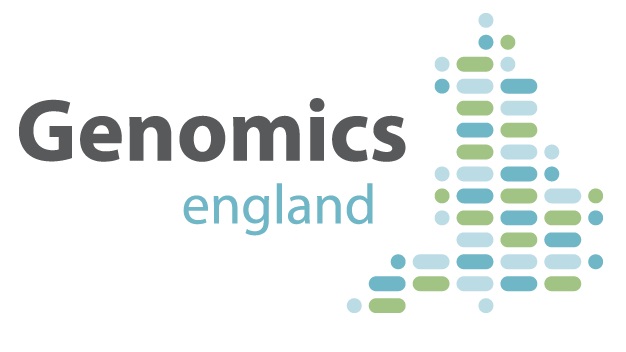
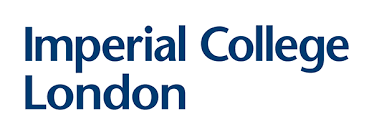
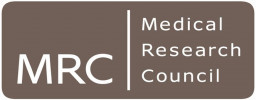


.png)

.jpeg)
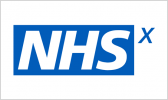


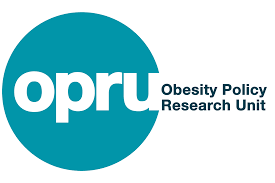


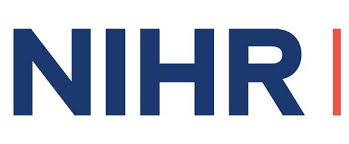
.png)
